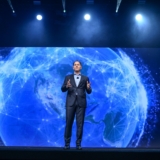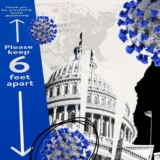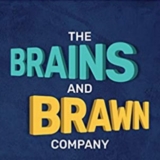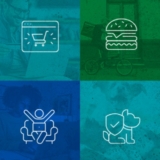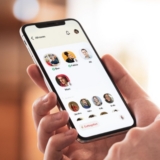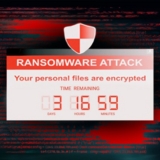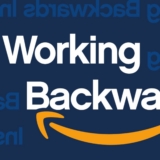“Beyond the Meme: Ever Given, Supply Chains, and the Physical World” — by Ryan Petersen (June 2021). Bio + essay details/ originally appeared ...
Today’s episode is all about crypto security — that is, the new mindsets and the new strategies for storing crypto assets safely while also allowing holders ...
There are lots of challenges in being public while trying to innovate, and limits to being a private company as well; but it’s rare to see a company go ...
There’s no question technology played a huge role in the recent/current pandemic, including especially in the plug-and-play engineering and incredibly ...
There’s been a false dichotomy in technology and management lore over the past decade, between “brain” and “brawn”, digital and ...
Recently, a16z and the Stanford Center for Blockchain Research hosted the NFT Virtual Summit, which brought together leading thinkers and builders on the topic ...
Playing out against the backdrop of a global pandemic (including recent massive surges in regions around the world) is the news that came out a week ago that a ...
This is a special episode of the a16z podcast — it’s an audio history, told through the voices of the a16z crypto team, about what crypto is, how it ...
It’s clear from the growth of Patreon, Substack, TikTok, Clubhouse and many more that the power of the Creator Economy continues to build. These ...
In today’s episode of the a16z Podcast, we’re talking about the Creator Economy, and how NFTs (but not just NFTS!) are making it possible for artists, ...
This episode is all about NFTs. It seems like nothing has caught on and spread into mainstream interest like NFTs, where one hears everything from ...
In the tech world, marketplaces are a hot topic. That term—marketplace—encompasses a huge swath of services we use every day, from grocery delivery to online ...
https://a16z.com/2021/03/15/16-minutes-58-the-johnson-johnson-vaccine-and-covid-efficacy-rates/
This podcast — which was recorded at the Computer History Museum in a live event, before the pandemic (first published in December 2019) is all about how ...
Boss Talk is a weekly live show on Clubhouse, where a16z cofounder Ben Horowitz and Databricks CEO Ali Ghodsi discuss CEO stuff, leadership stuff, management ...
In just the last couple years, ransomware has grown into a multibillion dollar industry. It has evolved from taking systems and servers hostage to stealing ...
On social audio app Clubhouse, Marc Andreessen and Ben Horowitz are hosting a new live show called “One on One with A and Z”, where they go deep on ...
When you hear stories about Amazon’s “invention machine” — which led to a company with not just one or two products but several ...
In this special “3x”-long episode of our (otherwise shortform) news analysis show 16 Minutes — past such 2-3X explainer episodes have covered section ...
In recent years, there’s been a shift in how we think about psychedelics – from drugs of abuse and recreation, to powerful drugs for treating neuropsychiatric ...
- « Previous Page
- 1
- …
- 18
- 19
- 20
- 21
- 22
- …
- 30
- Next Page »



